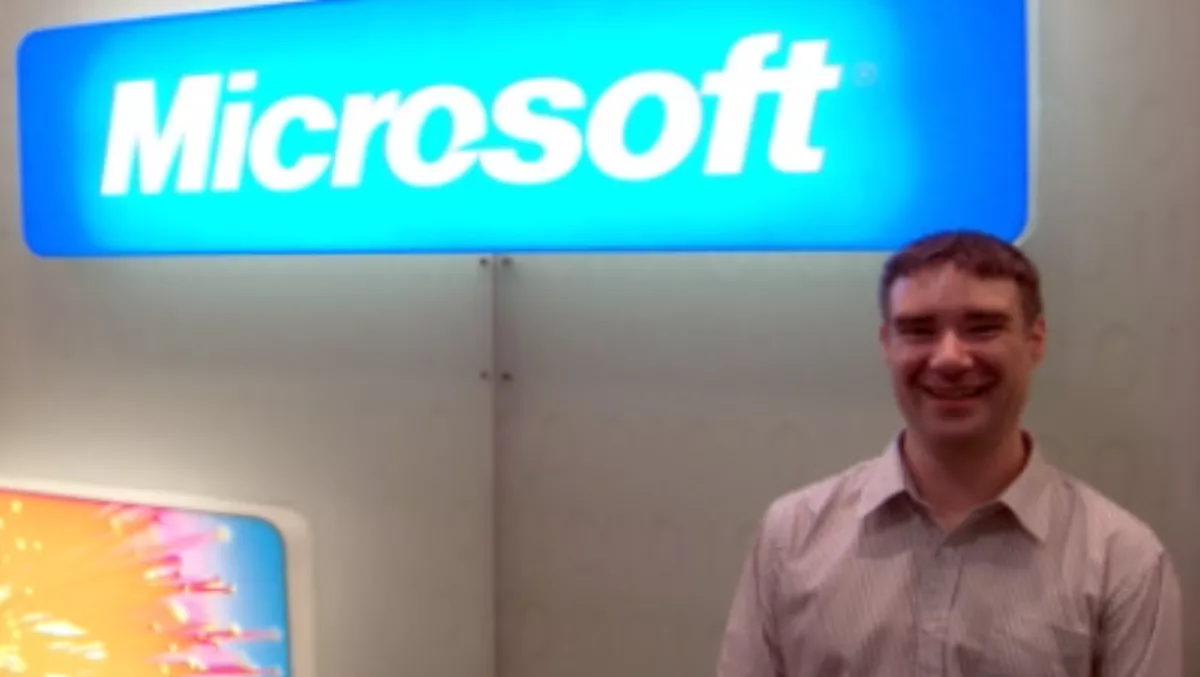
Microsoft Office 2010 interview - part 2
Click through for the second part of our interview with Senior Product Manager, Geoff Anderson.
The concluding part of our talk with Microsoft's Geoff Anderson discusses the company's vision for the cloud, the Office 2010 beta and whether or not he's ever met Bill Gates.
In case you missed it, you can catch up on the first part here, where Anderson talks about the upcoming launch of Office 2010.
Can you talk us through Microsoft's vision for the cloud?
I'll talk about it in enterprise context. Our vision is that you should be able to make a decision between on premises and the cloud and that should be a seamless path. So if you want to put some of your work load in the cloud and some on premises, where there's engineering, you can.
We think there's another decision to be made in how you want to deliver that. Do you want to do it through a rich client, the browser, the phone or some combination of those? Our option is choice and we really want to engineer for choice. Where do you put your server load - on premises, in the cloud? - it shouldn't matter and it should be your decision as a customer. How you want to deliver that to users should be your decision as a customer. We've made great progress in this release, particularly on the server side products on how easy we make that for people.
Why should a business buy Office 2010 when there are a growing number of free apps available online?
I think that enterprises are taking a total cost of ownership approach view on this and one of the great reasons to have one platform is to minimise the cost of ownership. Running one platform is significantly easier. Office has been the platform that they’ve been able to run for a long time and it does meet the need of 100% of its users.
How much does the Office legacy help?
Having a legacy of delivering is good. I think we now have a very open platform with Office Open XML. We’ve added the Office Web Apps that gives those organisations another piece of functionality that they’re looking for. And it’s all part of that one infrastructure.
We’ve spent a lot of time and research making sure the experiences work across the PC, the phone and the browser. So there is value to customers in investing in driving that experience which is going to keep the other costs like training and support down.
Why will businesses get the final release of Office in May before retail stores begin selling the boxed product in June?
This is down to the channel. We literally finish the product and we can make it available for download to our volume licensing customers but we have to produce physical media and our OEMs need time to configure and deliver it once we’ve finished the code.
Were any changes made to Office 2010 as a result of feedback from the beta?
The feedback in general has been positive. There have certainly been some things that we’ve fixed over the course of the beta, which is the whole idea, but I can’t think of anything specific that was changed. There was some excitement as the Social Connector was announced for Outlook.
There’s a lot work that happens before we even get to the beta and by the time the public gets to our beta 1 a lot of the functionality is there and you see incremental improvement in performance and fit and finish things. In terms of core fundamental changes, nothing got scrapped that I know of.
When can we expect the next office?
Codename is “15” and that’s really all we know at the moment. We target every two to three years as a release cycle.
Where do you think we’ll be at in five years time?
It really is too early to tell. Once we get this one out the door more and more of our resources start to turn to the research phase that we were talking about earlier.
How will you support Office 2010 post launch?
Microsoft has a very consistent support strategy around the service packs which are free to all customers. Those come out periodically. We have a pretty comprehensive support strategy and I don’t see any sign that will change.
There’s a sustained engineering team that will do support and there is a very clear lifecycle of five years of mainstream support. That’s followed by an optional extended support period and right through that lifecycle we have people who will continue to work and support the product while the rest of the team moves on.
Any plans to return to New Zealand?
You know, it’s very tempting. It’s great to come down here, see family and friends, but I don’t think I’ve done everything I want to in the States yet but one day I think yes. New Zealand’s a fantastic country.
With Microsoft?
I really don’t know, I haven’t thought that far ahead. I think that if you come to New Zealand there’s a lifestyle component to it and that’s the piece that is front of mind for me. I think career options would have to fit around that.
And finally, have you ever met Bill Gates?
I met Bill Gates briefly once, when I worked in New Zealand actually. I won a ‘contribution’ prize, which I have to say I can’t actually remember what it was for. It was early in my career but yes, I did get to briefly shake Bill Gates’ hand. To say I’d met him any more than that would be lying.

